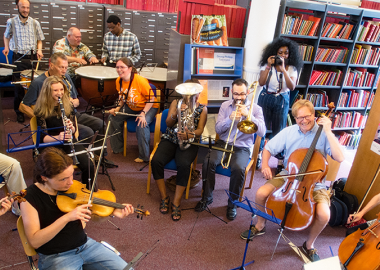Scales are a subject that strike fear into the heart of many musicians. Here we hope to give you a little bit of insight into why they are so important and how you can make them a lot more fun to learn. A good place to start is in realising that they are the building blocks of much of the music we play. Music is made up of patterns and scales are just one of those patterns.
Why scales are important
Scales are one way of organising sound; they are essentially a staircase up and down a set of pitches. The shape of the staircase changes for major and minor scales but for every major scale the shape is the same no matter which note the scale starts on. This is important because it gives the pattern a meaning, it helps our brains to understand which note is the ‘home’ (or ‘tonic’) note.
Practicing scales
Very often what goes wrong in the learning process is that scales get separated out as one part of the exam and are thought of in that context only. In terms of an exam and learning scales for the purposes of gaining marks, they can quickly become laborious. However, put them back in their musical context and start looking at them as a starting point for tonal music and they are suddenly a lot more exciting.
Bearing that in mind, when you are learning and practicing scales here are a few things to try:
Find them in the music
Take a piece you are learning and think about what scales it is based on, practice the scales that relate to that piece and in the style of that piece
Don’t just go up and down
Continually practicing scales in their simplest up and down format, starting from the tonic and ending on the tonic can get very dull very quickly. Try playing them starting from different points, going in different directions and in different styles.
Play with patterns
Usually a scale is played just by going up and down the staircase: 1,2,3,4 up to 8 and down again. You could try playing around with the notes in different patterns for example: 1,3,2,4,3,5,4,6 etc. or 1,2,3,2,1,3,4,3,2,4,5 etc.
Make it a technical workout
If there is a particular technique or aspect of pieces you are working on that you are finding difficult, for example a rhythm, a bowing pattern, or breath control, use the scale as a chance to practice that technique as well
Consolidate
These are all great methods for improving your knowledge of and ability to play scales and eventually there will come a time when you feel comfortable playing the scales you are learning. When this time comes remember to continue to test yourself regularly.










